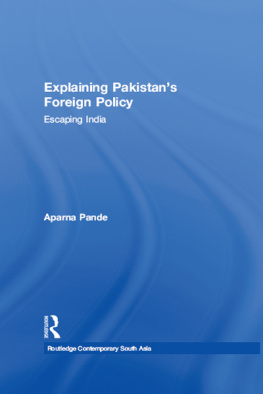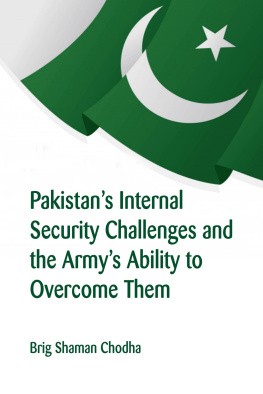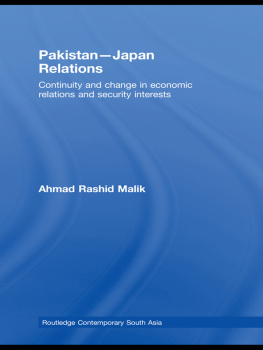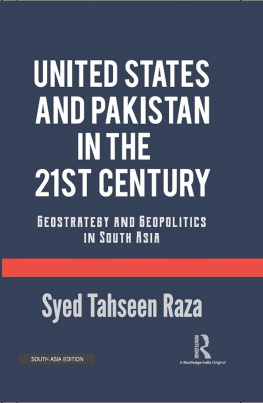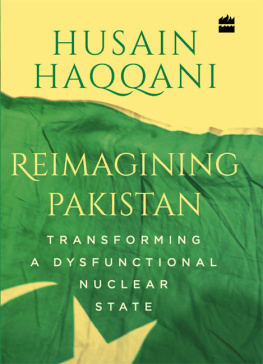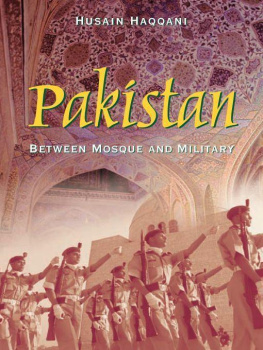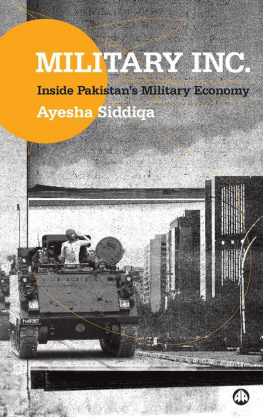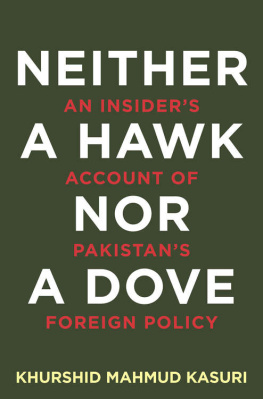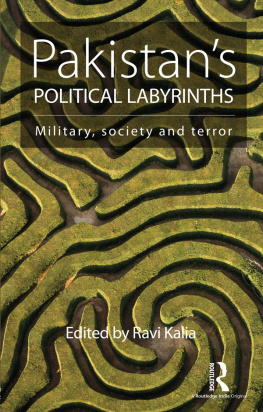1 Pakistan
Social and cultural transformations in a Muslim nation
Mohammad A. Qadeer 2 Labor, Democratization and Development in India and Pakistan
Christopher Candland 3 ChinaIndia Relations
Contemporary dynamics
Amardeep Athwal 4 Madrasas in South Asia
Teaching terror?
Jamal Malik 5 Labor, Globalization and the State
Workers, women and migrants confront neoliberalism
Edited by Debdas Banerjee and Michael Goldfield 6 Indian Literature and Popular Cinema
Recasting classics
Edited by Heidi R.M. Pauwels | 7 Islamist Militancy in Bangladesh
A complex web
Ali Riaz 8 Regionalism in South Asia
Negotiating cooperation, institutional structures
Kishore C. Dash 9 Federalism, Nationalism and Development
India and the Punjab economy
Pritam Singh 10 Human Development and Social Power
Perspectives from south Asia
Ananya Mukherjee Reed 11 The South Asian Diaspora
Transnational networks and changing identities
Edited by Rajesh Rai and Peter Reeves 12 PakistanJapan Relations
Continuity and change in economic relations and security interests
Ahmad Rashid Malik |
13 Himalayan Frontiers of India
Historical, geo-political and strategic perspectives
K. Warikoo 14 India's Open-Economy Policy
Globalism, rivalry, continuity
Jalal Alamgir 15 The Separatist Conflict in Sri Lanka
Terrorism, ethnicity, political economy
Asoka Bandarage 16 India's Energy Security
Edited by Ligia Noronha and Anant Sudarshan 17 Globalization and the Middle Classes in India
The social and cultural impact of neoliberal reforms
Ruchira Ganguly-Scrase and Timothy J. Scrase 18 Water Policy Processes in India
Discourses of power and resistance
Vandana Asthana 19 Minority Governments in India
The puzzle of elusive majorities
Csaba Nikolenyi 20 The Maoist Insurgency in Nepal
Revolution in the twenty-first century
Edited by Mahendra Lawoti and Anup K. Pahari 21 Global Capital and Peripheral Labour
The history and political economy of plantation workers in India
K. Ravi Raman | 22 Maoism in India
Reincarnation of ultra-left wing extremism in the 21st century
Bidyut Chakrabarty and Rajat Kujur 23 Economic and Human Development in Contemporary India
Cronyism and fragility
Debdas Banerjee 24 Culture and the Environment in the Himalaya
Arjun Guneratne 25 The Rise of Ethnic Politics in Nepal
Democracy in the margins
Susan I. Hangen 26 The Multiplex in India
A cultural economy of urban leisure
Adrian Athique and Douglas Hill 27 Tsunami Recovery in Sri Lanka
Ethnic and regional dimensions
Dennis B. McGilvray and Michele R. Gamburd 28 Development, Democracy and the State
Critiquing the Kerala model of development
K. Ravi Raman 29 Mohajir Militancy in Pakistan
Violence and transformation in the Karachi conflict
Nichola Khan |
30 Nationbuilding, Gender and War Crimes in South Asia
Bina D'Costa 31 The State in India after Liberalization
Interdisciplinary perspectives
Edited by Akhil Gupta and K. Sivaramakrishnan 32 National Identities in Pakistan
The 1971 war in contemporary Pakistani fiction
Cara Cilano 33 Political Islam and Governance in Bangladesh
Edited by Ali Riaz and C. Christine Fair 34 Bengali Cinema
An other nation
Sharmistha Gooptu 35 NGOs in India
The challenges of women's empowerment and accountability
Patrick Kilby 36 The Labour Movement in the Global South
Trade unions in Sri Lanka
S. Janaka Biyanwila 37 Building Bangalore
Architecture and urban transformation in India's Silicon Valley
John C. Stallmeyer 38 Conflict and Peacebuilding in Sri Lanka
Caught in the peace trap?
Edited by Jonathan Goodhand, Jonathan Spencer and Benedict Korf | 39 Microcredit and Women's Empowerment
A case study of Bangladesh
Amunui Faraizi, Jim McAllister and Taskinur Rahman 40 South Asia in the New World Order
The role of regional cooperation
Shahid Javed Burki 41 Explaining Pakistan's Foreign Policy
Escaping India
Aparna Pande |

